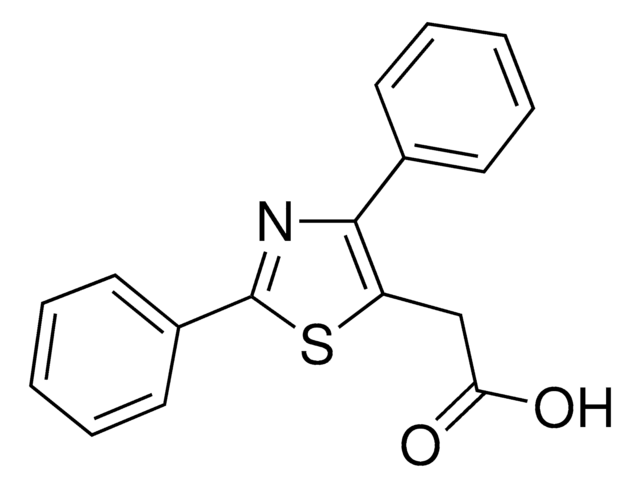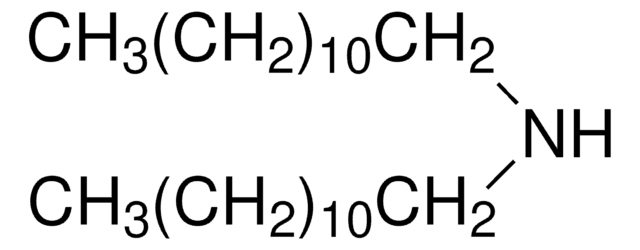757233
2,4-Bis[4-(N,N-diphenylamino)-2,6-dihydroxyphenyl]squaraine
98%
About This Item
Produits recommandés
Pureté
98%
Forme
powder
Pf
328-333 °C
λmax
720 nm
Énergie orbitale
HOMO 5.3 eV
LUMO 3.8 eV
Performance des dispositifs OPV
ITO/MoO3/DP-SQ/C60/PTCBI/Ag
Chaîne SMILES
Oc1cc(cc(O)c1[C]2[C+]([O-])[C]([C+]2[O-])c3c(O)cc(cc3O)N(c4ccccc4)c5ccccc5)N(c6ccccc6)c7ccccc7
InChI
1S/C40H28N2O6/c43-31-21-29(41(25-13-5-1-6-14-25)26-15-7-2-8-16-26)22-32(44)35(31)37-39(47)38(40(37)48)36-33(45)23-30(24-34(36)46)42(27-17-9-3-10-18-27)28-19-11-4-12-20-28/h1-24,43-46H
Clé InChI
FXAALAVLRJSKEQ-UHFFFAOYSA-N
Catégories apparentées
Description générale
Application
Mention d'avertissement
Warning
Mentions de danger
Conseils de prudence
Classification des risques
Eye Irrit. 2 - Skin Irrit. 2 - STOT SE 3
Organes cibles
Respiratory system
Code de la classe de stockage
11 - Combustible Solids
Classe de danger pour l'eau (WGK)
WGK 3
Point d'éclair (°F)
Not applicable
Point d'éclair (°C)
Not applicable
Certificats d'analyse (COA)
Recherchez un Certificats d'analyse (COA) en saisissant le numéro de lot du produit. Les numéros de lot figurent sur l'étiquette du produit après les mots "Lot" ou "Batch".
Déjà en possession de ce produit ?
Retrouvez la documentation relative aux produits que vous avez récemment achetés dans la Bibliothèque de documents.
Articles
Solution-processed organic photovoltaic devices (OPVs) have emerged as a promising clean energy generating technology due to their ease of fabrication, potential to enable low-cost manufacturing via printing or coating techniques, and ability to be incorporated onto light weight, flexible substrates.
Solution-processed organic photovoltaic devices (OPVs) have emerged as a promising clean energy generating technology due to their ease of fabrication, potential to enable low-cost manufacturing via printing or coating techniques, and ability to be incorporated onto light weight, flexible substrates.
Solution-processed organic photovoltaic devices (OPVs) have emerged as a promising clean energy generating technology due to their ease of fabrication, potential to enable low-cost manufacturing via printing or coating techniques, and ability to be incorporated onto light weight, flexible substrates.
Solution-processed organic photovoltaic devices (OPVs) have emerged as a promising clean energy generating technology due to their ease of fabrication, potential to enable low-cost manufacturing via printing or coating techniques, and ability to be incorporated onto light weight, flexible substrates.
Notre équipe de scientifiques dispose d'une expérience dans tous les secteurs de la recherche, notamment en sciences de la vie, science des matériaux, synthèse chimique, chromatographie, analyse et dans de nombreux autres domaines..
Contacter notre Service technique![1,3-Bis[4-(dimethylamino)phenyl]-2,4-dihydroxycyclobutenediylium dihydroxide, bis(inner salt) Dye content 90 %](/deepweb/assets/sigmaaldrich/product/structures/301/519/500149b3-198c-44cf-b952-7e91f54fc48e/640/500149b3-198c-44cf-b952-7e91f54fc48e.png)









